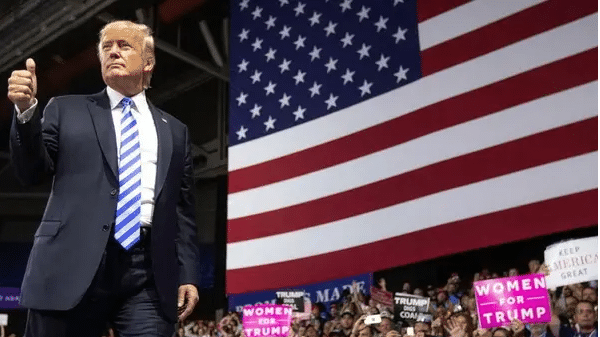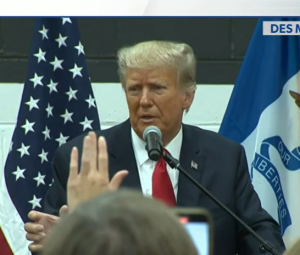A US magistrate court has started the process of potentially disclosing details from the affidavit that the Justice Department used to secure a search warrant for the Florida home of former President Donald Trump.
Judge Bruce Reinhart announced his intention to unseal some portions of the affidavit requested by several media outlets and other organisations at a hearing at the West Palm Beach courthouse. He made his announcement after the Justice Department.
The judge expects to hear more from the Justice Department by next Thursday about the extent to which investigators want to keep the document outlining their investigative procedures and methodologies that necessitated the search confidential. According to Reinhart, prosecutors will have the opportunity to suggest redactions and justify why each piece of information should be withheld from the public. These proposals must be submitted by August 25 at 12:00 p.m. ET.
Also Read| Brian Stelter exit: Conservatives rejoice, compare it to Liz Cheney loss
Trump could be the subject of a criminal probe
The former President is now more clearly in the spotlight as a potential target of the criminal investigation, according to CNN, after a document that was previously sealed on Thursday revealed specifics about the crimes the Justice Department is looking into, including “willful retention of national defence information.” The previous President may be referred to by the specific language on “willful retention” because, while in office, he would have been permitted to keep national defence documents, but not after relocating to his private club and residence in Palm Beach, Florida. One of the mainly procedural documents that the judge unsealed on Thursday was the recently revealed document, which was a component of the warrant application.
Mar-a-Lago may have obstruction evidence.
According to a Justice Department attorney who testified during the hearing, the probable cause affidavit used to obtain the search warrant described how law enforcement might find “evidence of obstruction” on the Florida property, a potential offence that the search warrant itself revealed was being investigated. Reinhart said during the hearing on Thursday that he “determined there is probable cause” that the laws were broken. Obstruction of justice was one of the three laws named on the search warrant for Mar-a-Lago, which was unsealed last week.
Also Read| US naval officer jailed in Japan, family seeks Biden’s intervention
Affidavit contains substantial grand jury information
The affidavit is extensive, thorough, and contains “substantial grand jury information,” according to Bratt. Making the declaration available to the public, he claimed to the federal judge, would “give a roadmap to the investigation” and even outline its upcoming phases. Bratt acknowledged that there is a “public interest” in openness but added that there is also a “public interest” in unimpeded criminal investigations.
Release of the affidavit could intimidate witnesses
Bratt stated that several witnesses are already involved in the investigation of the papers, and he expressed concern that the release of the affidavit could intimidate witnesses involved in current and future investigations. Some of those witnesses, according to Bratt, have extremely specific pertinent information that, if made public, would identify them. Bratt also mentioned a recent standoff at an FBI field office in Cincinnati and “amateur sleuths” on the internet as risks the FBI has faced since the Mar-a-Lago search became public. If any of the other documents are made public, the DOJ will want to redact even background information about the agents who have so far worked on the case, he said.
Also Read| The car crash that landed US naval officer Ridge Alkonis in Japanese jail
Trump’s attorneys did not comment
Trump’s lawyer was present at the hearing, but neither the judge nor anyone else asked her to comment. Christina Bobb, the lawyer, told the media before the hearing that she was only there to observe. Trump is not formally involved in the controversy surrounding the release of the warrant paperwork. When the DOJ previously asked the Court to unseal the search warrant and the receipt for it, the judge directed the Department to speak with Trump and then notify the court if Trump objected to the materials being revealed.
Prior to Thursday’s hearing, the court set a 9 a.m. ET deadline for the parties to submit their responses to the DOJ papers in the case. In light of the fact that Trump and his supporters had been outspoken outside of court about their desire for the release of the warrant documents, it was noteworthy that the Trump team did not attempt to formally interfere in the dispute by that point.







